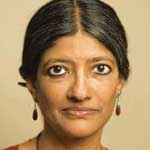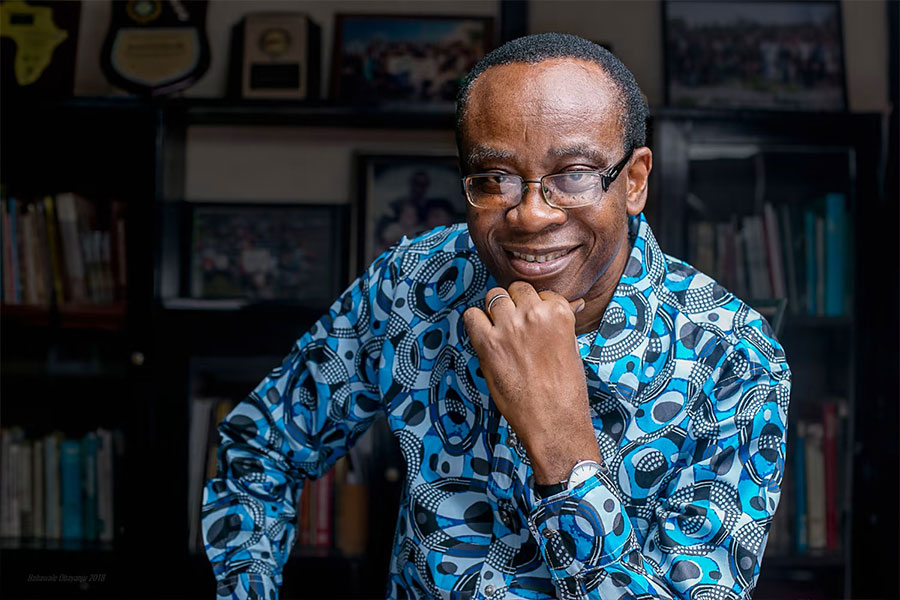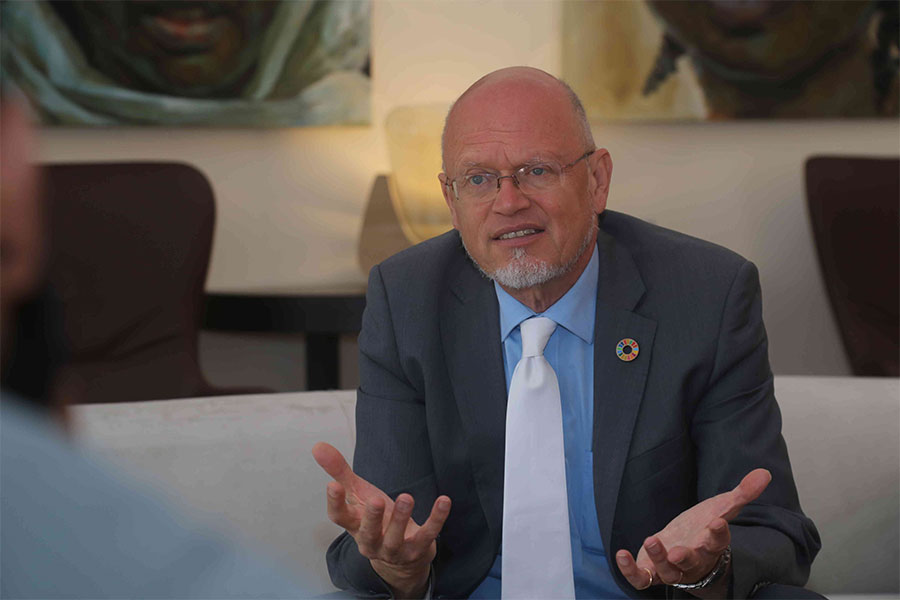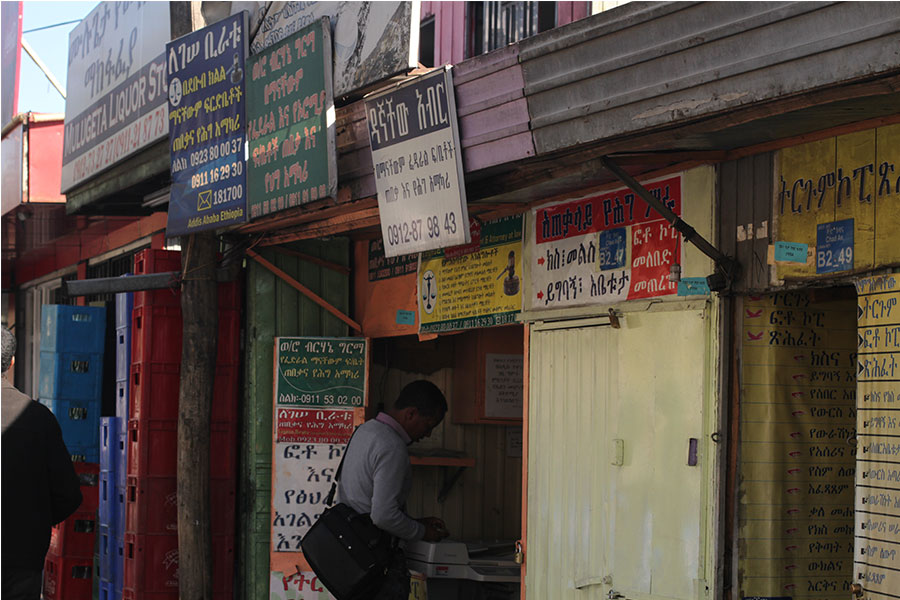
Dec 16 , 2023
By Jayati Ghosh
The United Nations Climate Change Conference (COP28) in Dubai was an opportunity to reflect on what these large, costly, and carbon-intensive international summits aim to achieve. Instead of being cynical exercises in pointless pageantry, such gatherings could serve as platforms for advancing the transformative changes required to mitigate the worst effects of today's climate crisis.
But to achieve this, political leaders must stop bickering over the wording of national policy commitments that will take effect only in the distant future, well beyond their tenures, and shift their focus to concrete actions that could unlock funding for climate-mitigation projects across the developing world.
This may seem like a pipe dream because lower-income countries are still waiting for the relatively small amount of climate funds promised to them more than a decade ago. But viable, low-cost ways to bolster climate finance exist even within the global economy's current institutional framework. The International Monetary Fund's reserve assets in special drawing rights (SDRs) are a prime example.
SDRs could fund climate adaptation and mitigation efforts in the developing world. The IMF's allocation of 650 billion dollars in SDRs in August 2021 served as a lifeline for lower-income countries during the COVID-19 pandemic. However, these SDRs were distributed according to countries' IMF quotas, which depend heavily on their GDP. Consequently, low- and middle-income economies received a little over 200 billion dollars. Even so, SDRs proved to be a crucial source of foreign exchange.
Rich countries, which did not need the 400 billion dollars of SDR allocated to them, should have redirected these resources toward climate funds or regional development banks. Regrettably – and inexplicably – they did not. And even if they had, re-channelling the funds in this way would have increased developing countries' debt burdens.
Given that SDRs are not a currency but rather a potential claim on a currency, they function as accounting units within the IMF and do not involve any issuance costs. When maintained solely as reserve assets, they are not considered IMF loans and thus do not have to be repaid. It is only when countries convert some of their SDR holdings into hard currency that they must pay the annual interest rate, which is based on the interest rates on short-term debt denominated in the five currencies underpinning SDRs: the US dollar, the euro, the yen, the renminbi, and the British pound.
At 4.1pc, it is significantly lower than the rates that multilateral development banks typically offer to lower-income countries.
Issuing SDRs is a relatively low-cost and practical way to provide highly indebted countries with foreign exchange reserves. That is why, together with more than 140 other individuals and organisations, I signed a letter urging world leaders at COP-28 to recognise the role that new and existing SDRs could play in helping countries achieve their climate targets and the UN Sustainable Development Goals (SDGs).
A new issuance of SDRs would offer immediate relief to countries facing balance-of-payments constraints, particularly those wrestling with debt and climate challenges. Regular and periodic SDR issuances, in line with global GDP growth, could provide developing countries with the fiscal and foreign exchange flexibility they need to invest in development- and climate-related initiatives.
But first, we must change the way SDRs are allocated.
Because SDRs are currently based on IMF quotas, they are disproportionately allocated to rich countries that control global reserve currencies. These countries do not need SDRs and are unlikely to use them. To establish a more equitable system, the recent report by the High-Level Advisory Board on Effective Multilateralism (of which I was a member) outlines several reforms to ensure that new issuances are focused on low- and middle-income countries.
One way to achieve this is to allocate poorer countries double or triple their IMF quotas. But while this approach would undoubtedly be more efficient and useful, ensuring that a greater share of international liquidity is used, it does not adequately address each country's specific vulnerabilities and needs.
The IMF could introduce targeted allocations, with eligibility criteria focusing on exposure to climate change, terms-of-trade shocks, interest-rate fluctuations, capital-flow volatility, and other external forces beyond the control of affected countries. Admittedly, this would require amending the IMF's Articles of Agreement. But that is not an insurmountable obstacle, particularly if the organisation's major shareholders, such as the G7 countries, endorse such a change.
Strangely, rich countries have not considered this option, even though it would not cost them anything.
If the G7 and other rich countries truly want to regain some degree of moral legitimacy, their first step should be to re-channel their SDRs to lower-income countries. These transfers must be non-conditional and not add to developing countries' debt burdens.
The ineffectiveness of using dedicated funds like the IMF's Resilience & Sustainability Trust (RST) has also become increasingly apparent. The RST, which was supposed to raise 50 billion dollars, has raised less than 30 billion dollars in contributions and disbursed a small fraction of that. Concerns about delays, criteria for selecting recipients, and the conditions attached to the loans have compounded the problem.
We could easily develop simpler and more efficient mechanisms for re-channelling SDRs, requiring only the payment of the SDR interest rate.
It is startling that such a simple, painless, and virtually cost-free solution has few advocates. Instead of engaging in fruitless discussions about "blending" public and private finance – a strategy that has yet to generate the promised trillions of dollars for climate finance, the G7 countries must reach the low-hanging fruit of SDR issuance. By doing so, they could advance the fight against climate change and foster a fairer, more sustainable global economy.
This article is provided by Project Syndicate (PS).
PUBLISHED ON
Dec 16,2023 [ VOL
24 , NO
1233]


Viewpoints | Mar 11,2023

Exclusive Interviews | Jan 07,2023

Agenda | Nov 16,2024

Exclusive Interviews | Apr 15,2023

View From Arada | Jan 12,2019

Viewpoints | Feb 24,2024

Commentaries | Nov 30,2024

Radar | Sep 14,2024

Commentaries | Apr 30,2022

My Opinion | Jul 07,2024

My Opinion | 132151 Views | Aug 14,2021

My Opinion | 128561 Views | Aug 21,2021

My Opinion | 126482 Views | Sep 10,2021

My Opinion | 124091 Views | Aug 07,2021





Dec 22 , 2024 . By TIZITA SHEWAFERAW
Charged with transforming colossal state-owned enterprises into modern and competitiv...

Aug 18 , 2024 . By AKSAH ITALO
Although predictable Yonas Zerihun's job in the ride-hailing service is not immune to...

Jul 28 , 2024 . By TIZITA SHEWAFERAW
Unhabitual, perhaps too many, Samuel Gebreyohannes, 38, used to occasionally enjoy a couple of beers at breakfast. However, he recently swit...

Jul 13 , 2024 . By AKSAH ITALO
Investors who rely on tractors, trucks, and field vehicles for commuting, transporting commodities, and f...

Jul 12 , 2025
Political leaders and their policy advisors often promise great leaps forward, yet th...

Jul 5 , 2025
Six years ago, Ethiopia was the darling of international liberal commentators. A year...

Jun 28 , 2025
Meseret Damtie, the assertive auditor general, has never been shy about naming names...

Jun 21 , 2025
A well-worn adage says, “Budget is not destiny, but it is direction.” Examining t...

Jul 13 , 2025 . By YITBAREK GETACHEW
The Addis Abeba City Revenue Bureau has introduced a new directive set to reshape how...

Jul 13 , 2025 . By BEZAWIT HULUAGER
Addis Abeba has approved a record 350 billion Br budget for the 2025/26 fiscal year,...

Jul 13 , 2025 . By RUTH BERHANU
The Addis Abeba Revenue Bureau has scrapped a value-added tax (VAT) on unprocessed ve...

Jul 13 , 2025 . By NAHOM AYELE
Federal lawmakers have finally brought closure to a protracted and contentious tax de...